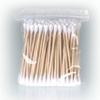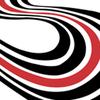johnmares

Joined: May 19, 2015
Posts: 10
Hermosa Beach, CA

|

Posted on Jul 17 2017 07:20 PM
donhearl wrote:
Hello Forum,
A few posts up I was troubleshooting the hum in my Surfy Bear reverb. I found that my particular issue was the power supply. I found a super quiet power supply in the Asian Power Devices DA-24F12. It is the 2A model. Perfect for the reverb and low noise interaction with my other pedals.
Cheers,
Don
I had the same issue and came to the same result: Upgrade the power supply and no mo' hum.
I used this one from amazon:
https://www.amazon.com/gp/product/B00Q2E5IXW/ref=oh_aui_detailpage_o00_s00?ie=UTF8&psc=1
$6.99 shipped.
|
bjoish

Joined: Jul 06, 2010
Posts: 596
Stockholm



|

Posted on Jul 18 2017 02:33 AM
StudioMollan wrote:
...however I'm interested in trying to modify the amount of bass reaching the reverb tank. I know theres a lo cut filter before the tank but its hard to make out where it is with the small SMD components.
Can you please point me in the direction of the filter? It should be a series capacitor right?
Hi Emil
What you are looking for is probably a "cap-mod" as described on this 6G15-wikipage: http://wiki.surfguitar101.com/ReverbFaq#Popular_Modifications
On our FAQ we have described how to modify the value of "C10":
http://www.surfyindustries.com/faq
/Björn
|
j_flanders

Joined: Jun 28, 2017
Posts: 162
|

Posted on Jul 18 2017 04:47 AM
Wouldn't the C10 mod change the amount of bass coming out of the reverb rather than the requested bass reduction reaching the reverb?
I was a bit surprised to see the suggested 'cuts' on your blog when I added the C10 mod, since the C10 mod is normally about increasing the bass, for which no cuts are needed as you can simply switch in additional capacitors in parallel to the existing one.
It's also when I did that mod, I noticed that the lug numbering of all the pots in the Surfy Bear schematics seem to be 'incorrect'/reversed. 1 should be 3 and 3 should be 1. Or am I seeing this the wrong way?
On a more personal note: I have both the reverb and the tremolo, built into pedals, but I still need to do the lettering/graphics. I'm inclined to label them "Surfy Verb" and Surfy Trem" but I'm feeling kinda guilty/uncomfortable to change the original name. So, what's the story behind the 'bear-name'?
Also, years ago I first found your website when I was looking for info into building an amp based on the Tech21 character pedals.
Now that you have a Fender reverb and a Fender tremolo, are there any plans to eventually offer an amp kit? Hopefully following the same philosophy as for the Surfy Bear, namely a copy of a circuit topology, replacing tubes by FET's, rather than the Tech21 character pedals which emulate the sound/tone instead of the original circuit.
Last edited: Jul 18, 2017 04:49:03
|
bjoish

Joined: Jul 06, 2010
Posts: 596
Stockholm



|

Posted on Jul 18 2017 06:46 AM
Hi j_flanders
Yes, you are right. C10-mod is the most usual mod, but maybe this is not what he is looking for. For reducing the amount of bass sent to the reverb pan it is possible to add a capacitor in series with the Dwell pot. Let me know if you need instructions.
Regarding the FAQ schematic for C10-mod. Yes, the cuts are actually not needed if you accept to just increase the onboard capacitor.
Pots in the Surfy Bear schematics are 'upside-down'. Same as on the colour picture.
Since its your build, you can call it what you like best. The story behind the bear-name is simple. I needed a name and my name 'Björn', means Bear in Swedish 
For the moment we have no plans for an amp, maybe in the future. It would certainly be a nice project!
If you are curious about how a FET-emulated amp would sound like, you can disconnect the reverb pan from your SurfyBear and connect the RevOut signal to a 8ohm speaker. With a 12" speaker it actually sounds quite good.
Last edited: Jul 18, 2017 06:49:58
|
j_flanders

Joined: Jun 28, 2017
Posts: 162
|

Posted on Jul 18 2017 05:56 PM
bjoish wrote:
Pots in the Surfy Bear schematics are 'upside-down'. Same as on the colour picture.
By schematic I mean the circuit. For example:

The C10 mod explained in words would be:
"Solder an additional capacitor from lug 2 of the tone pot to lug 3 of the mixer pot."
But as you can see in the schematic above, the lug labeled '3' of the mixer pot is connected to the dry signal, so you'd solder it incorrectly based on the schematic. That's what I meant by saying that the numbering of the lugs on all the pots in the schematic are incorrect. 
bjoish wrote:
I needed a name and my name 'Björn', means Bear in Swedish 
For the moment we have no plans for an amp, maybe in the future.
Hey, great story! I live in Belgium and there are many guys named Björn here but I never realised its meaning.
If you eventually build the amp it should be a Blonde named Agnetha or a blackface called Frieda. 
If you are curious about how a FET-emulated amp would sound like, you can disconnect the reverb pan from your SurfyBear and connect the RevOut signal to a 8ohm speaker.
It's worth a try I guess, who knows what interesting sounds will come from it, but since the drive circuit is voiced for a reverb tank, wouldn't it sound a bit tinny because of the high pass filtering?
I have some more questions:
1) muffled dry signal
I like the reverb at lower mix settings because my dry signal is still crisp and also at higher mix settings because the highs of the reverb will compensate for the loss in my dry signal and there isn't that much dry signal left anyway.
But at intermediate mixer settings I sometimes want a bit more 'hifi' sound and would like a less muffled dry signal. So I added a 'dry cut' switch to have a 100% wet output. This way I can mix in my unaltered dry signal with an active mixer (currently using a Boss LS2 pedal).
My 'dry cut'-switch simply connects lug 1 of the mixer pot (which is labeled '3' in the schematic above) to ground. This seems to work fine but I wonder if this is the best way to go. Especially with regard to the output impedance of the wet signal, since the mixer pot then becomes a 'reverb volume pot'.
2)gain trim pot
I haven't touched the ones in the Surfy trem but couldn't resist the urge to give the one in the Surfy Bear a spin...
I didn't mark the original position and I know it's not really all that critical: simply turn until it sounds fine in most settings with most guitars.
But what is the factory setting? At what Ohm are these set?
I noticed that the 'gain trimpot' has gone through several versions, from a simple resistor connected to the dwell pot(?) to an actual trimpot in various places(?)
In my version I think it's R9 in the schematic labeld at 0 Ohm.
What does the trimpot actually do that you couldn't do by turning the dwell down a bit?
What would the actual 'calibration' process be, starting from 0 ohm on the trimpot and going up, listening for what?, or looking on a scope for what?
Last edited: Jul 18, 2017 18:01:49
|
bjoish

Joined: Jul 06, 2010
Posts: 596
Stockholm



|

Posted on Jul 19 2017 03:42 AM
Ok I understand, I am afraid the pot lug numbering on this schematic not is fully consistent.
1) There are many ways to do a "dry-cut". Your way of doing it is perfectly fine and I suppose you can use Mixer as volume (in dry-cut mode). Another way is to get the wet-signal from the mid-lug of the Tone pot but then you will loose the effect of the "C10" filtering cap.
2) The basic idea about the trim pot is to provide a possibility to adjust the gain of the driver path. MOSFETs sometimes have different gain and I have a test jig where I calibrate each board to the gain close to 6G15. For the latest board versions the mid-position is very close to optimal. (if you look very closely you should be able to find out what is mid-position 
I think you should adjust by ear. When Dwell is set to max you should get a slightly overdriven tone.
|
Badger

Joined: Nov 16, 2013
Posts: 4536
Wisconsin







|

Posted on Jul 19 2017 06:01 AM
bjoish wrote:
Regarding the FAQ schematic for C10-mod. Yes, the cuts are actually not needed if you accept to just increase the onboard capacitor.
Hi Bjorn, interesting discussion (and cool to learn about your name).
Separate from your kit, your description is what I've seen generally accepted as "C10 mod" (simply increasing value of C10) and applies in traditional tanks as well. What a thread man! 80-something pages & still going. 
— Wes
SoCal ex-pat with a snow shovel
DISCLAIMER: The above is opinion/suggestion only & should not be used for mission planning/navigation, tweaking of instruments, beverage selection, or wardrobe choices.
|
bjoish

Joined: Jul 06, 2010
Posts: 596
Stockholm



|

Posted on Jul 20 2017 02:10 AM
Thanks Wes!
Yes, its very cool this simple circuit is still discussed 
|
tinsacer

Joined: Jul 14, 2017
Posts: 11
|

Posted on Jul 24 2017 06:51 AM
Hello again, i have finished the build and it works...is it normal for the enclosure of the pedal to get really hot?
I put it in a small pedal enclosure and it gets almost too hot to touch.
Last edited: Jul 24, 2017 07:33:48
|
Gilette

Joined: May 04, 2014
Posts: 734



|

Posted on Jul 24 2017 01:29 PM
tinsacer wrote:
Hello again, i have finished the build and it works...is it normal for the enclosure of the pedal to get really hot?
I put it in a small pedal enclosure and it gets almost too hot to touch.
The surfy bear is a class A amplifier which means it runs quite a lot of current even at rest. So it's normal things get hot and essential the output FET's are cooled by a heatsink. In your case the enclosure is the heatsink.
|
tinsacer

Joined: Jul 14, 2017
Posts: 11
|

Posted on Jul 24 2017 10:53 PM
Is it ok if i screw the board with the metal plate of the enclosure to a bigger metal enclosure of my old broken tube amp ?
I dont wanna fuck up the heat pad, also how tight should u screw the pcb to the case? Can something happen if you screw it down so the mosfets touch the pcb?
Last edited: Jul 25, 2017 00:06:22
|
Gilette

Joined: May 04, 2014
Posts: 734



|

Posted on Jul 25 2017 02:26 AM
You can buy heat pads at computer repair shops. But you're right, the bigger the heat sink, the cooler the pcb. You shouldn't overtighten the screw of course. Just tight enough to secure a good heat conduction. The SMD parts on the board are sturdy but they can break or come loose. Gently is the word I guess.
|
tinsacer

Joined: Jul 14, 2017
Posts: 11
|

Posted on Jul 25 2017 08:59 AM
Thanks for the help, ill just screw the plate that the pcb is now on to a bigger enclosure, hope its all good with the reverb, ive only plugged it it once and didnt play with it really cause it was getting hot.
|
orbitbot

Joined: Jul 05, 2017
Posts: 4
|

Posted on Jul 30 2017 01:16 PM
Yay, got my DIY kits for both the reverb and the tremolo this weekend, will assemble as soon as I can find my soldering iron (after a move). I read through the whole message chain before ordering, but not sure if I missed it; was the Dwell mod/schematic on the special reverb with the stacked mix pots ever released?
|
bjoish

Joined: Jul 06, 2010
Posts: 596
Stockholm



|

Posted on Jul 31 2017 05:24 AM
orbitbot wrote:
I read through the whole message chain before ordering, but not sure if I missed it; was the Dwell mod/schematic on the special reverb with the stacked mix pots ever released?
Hi Orbitbot
What do you mean with Dwell mod/schematic?
The stacked-mixer feature is not a part of the kit.
However, on our FAQ (http://www.surfyindustries.com/faq) you can find out howto add this feature yourself.
|
orbitbot

Joined: Jul 05, 2017
Posts: 4
|

Posted on Jul 31 2017 04:18 PM
Ack! I meant to write "Decay", and meant the adjustable decay demonstrated in this video at 1:26 https://youtu.be/dQJTb8BVsKY?t=1m26s ...
|
Humpelhuhn_Todesstern

Joined: Aug 01, 2017
Posts: 3
|

Posted on Aug 01 2017 12:40 PM
Hello! I just soldered my Surfy Reverb pedal and so far I'm pretty happy with the sound (on my home amp), definately much better that any spring emulation that I tested so far (because i wanted something small) and gave up, because there was so good cheap solution. Anyway!
I noticed quite a strong volume difference between the bypass clean sound compared to if I don't have the effect in the chain. (I soldered the bypass like in the kit user guide: http://www.surfyindustries.com/download/SurfyIndustries-SurfyBear_Kit-UserGuide.pdf)
Is there something I can do about it? Is it normal? (I hope not?)
|
bjoish

Joined: Jul 06, 2010
Posts: 596
Stockholm



|

Posted on Aug 01 2017 04:33 PM
Hi Humpelhuhn_Todesstern
Since the Surfy Bear reverb circuit is very similar to the original Fender 6G15 circuit it also have the same 'peculiarities'.
-You dont have 'true bypass'.
-The dry signal will loose a little treble but it is normally easy to compensate for using the amp treble control, or just compensate with more reverb (wet signal) 
-The output impedance is quite high. This means that depending on the equipment you connect to the reverb output it can affect the volume.
-Reverb pans dont sound the same. Not even the same brand and type.
You can read more about these things on this brilliant faq page:
http://wiki.surfguitar101.com/ReverbFaq
If the volume difference is extreme, it can indicate there is something wrong, of course!
/Björn
|
bjoish

Joined: Jul 06, 2010
Posts: 596
Stockholm



|

Posted on Aug 01 2017 04:35 PM
orbitbot wrote:
Ack! I meant to write "Decay", and meant the adjustable decay demonstrated in this video at 1:26 https://youtu.be/dQJTb8BVsKY?t=1m26s ...
No I am sorry, that model was only build in a small quantities for testing the concept.
|
kizzer

Joined: Jun 27, 2017
Posts: 12

|

Posted on Aug 17 2017 10:23 AM
I've finished my Surfy Reverb/Tremolo unit! Love the sound of it! The combinations you can create with the different types of tremolo in conjunction with the reverb are hugely diverse and I'm looking forward to using it in a recording session.
I went for the toolbox installation, everything fits snugly with plenty of room for the wiring. I used a meanwell powersupply that was suggested on this forum to power both the reverb and tremolo and it works great with no hum.
I want to thank Björn and Lorenzo at Surfy for helping out with a few issues I was having during the build. The customer service from this company is top notch. Also thanks to Gilette from the forum for all the help with my persistent questions about switches and grounding!




Last edited: Aug 17, 2017 10:24:14
|










































